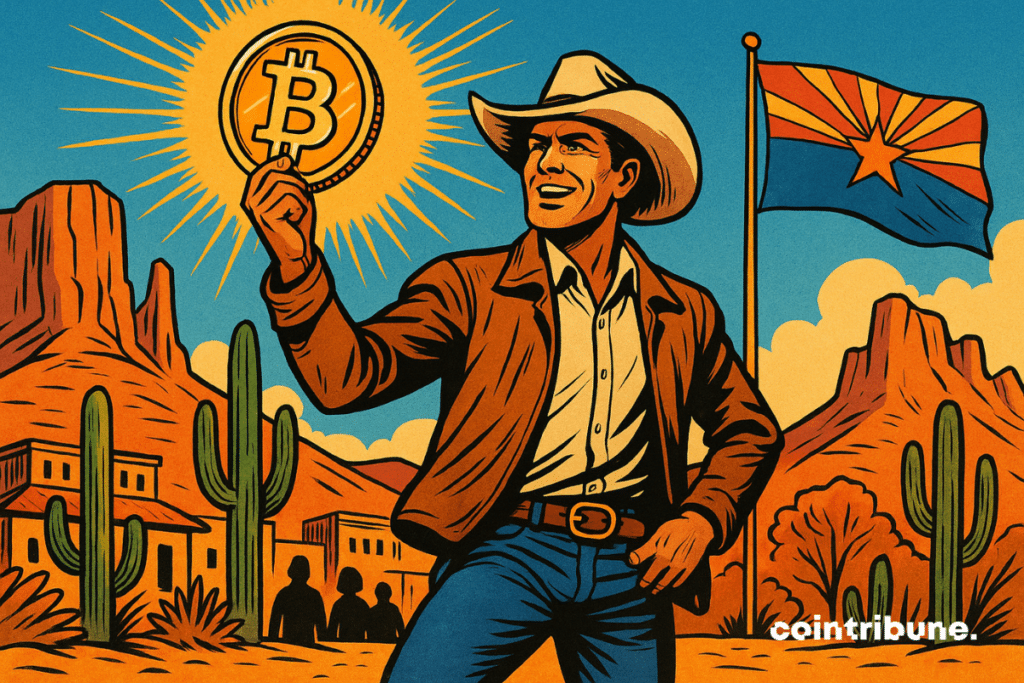Bitcoin In Public Reserves: Arizona Paves The Way For The United States
Arizona is about to make history by becoming the first U.S. state to have a bitcoin reserve. With the approval of various historic bills, the state could allocate up to 10% of its public assets into cryptocurrencies, paving the way for a new era in American public finance.

In Brief
- Arizona could become the first U.S. state to have a bitcoin reserve, with an investment of 10% of its public assets.
- The approved bill authorizes investment of up to $3.14 billion in cryptocurrencies, including bitcoin and NFTs.
- This initiative could push bitcoin to $106,000 in the short term and up to $210,000 by the end of 2025, according to analyst forecasts.
Innovative Legislation for a Bitcoin Reserve
The Arizona Senate recently approved bills 1025 and 1373 that authorize the investment of 10% of the state’s public assets into digital assets such as bitcoin and NFTs. This measure could see the state invest up to $3.14 billion in these assets. Additionally, a strategic digital asset reserve, the “Digital Assets Strategic Reserve Fund“, will be created to manage these investments, using seized cryptocurrencies and future budget allocations. This fund will benefit from full transparency through blockchain auditability and strict risk control.

This bill could mark a turning point in how governments manage their public reserves. Indeed, Arizona is drawing inspiration from similar strategies seen in other states like Texas and Florida, which are also exploring the integration of bitcoin into their public finances. If the bill is signed by Governor Katie Hobbs, Arizona will become the first state to hold BTC in its public funds.
A Revolution for the Crypto Market
With this decision, Arizona could quickly become one of the largest institutional holders of bitcoin among U.S. public entities, after the city of Miami. This move is seen as a strong signal to the markets, highlighting the growing acceptance of BTC as a sovereign and secure asset for public reserves. The potential impact on the Bitcoin market could be significant, especially with an investment of this magnitude.
Indeed, a bitcoin reserve of $3.14 billion could exert significant upward pressure on the market. Currently at $94,955, some analysts believe that such institutional investments could push bitcoin to $106,000 in the short term, or even up to $210,000 by the end of 2025, according to Peter Chung’s forecasts. Thus, Arizona’s initiative could not only strengthen the legitimacy of BTC as a sovereign asset but also catalyze a substantial appreciation in its value.
Arizona could soon become a pioneer in integrating bitcoin within American public finances. By allocating part of its assets into cryptocurrencies, the state is opening the way to a new era for sovereign reserves. The focus is now on Governor Hobbs’s decision, which could seal this historic first and follow in the footsteps of Trump, by making BTC a state asset.
Maximize your Cointribune experience with our "Read to Earn" program! For every article you read, earn points and access exclusive rewards. Sign up now and start earning benefits.
The world is evolving and adaptation is the best weapon to survive in this undulating universe. Originally a crypto community manager, I am interested in anything that is directly or indirectly related to blockchain and its derivatives. To share my experience and promote a field that I am passionate about, nothing is better than writing informative and relaxed articles.
The views, thoughts, and opinions expressed in this article belong solely to the author, and should not be taken as investment advice. Do your own research before taking any investment decisions.